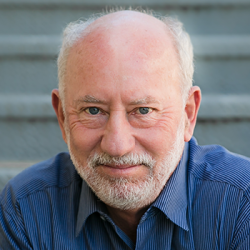
Here are some articles, blog posts, research studies, and other resources I’ve recently run across that connect to Project Based Learning.
3 School Innovation Insights that Challenge Common Assumptions
Getting Smart
Love the takeaways from the Christensen Institute’s Canopy Report that challenge three common assumptions: “suburban schools are the ripest ground for innovation,” “Project-based learning (PBL) is attainable mainly in affluent suburban schools” and “Moving beyond test scores” means prioritizing social-emotional learning (SEL).”
Creativity in Learning
Gallup
This is a fascinating and important report on a Gallup survey of teachers and parents. A sample of many encouraging findings: “87% of teachers and 77% of parents agree that teaching approaches that inspire creativity in the learning process have a bigger payoff for students.” Look for a blog post about this coming soon!
A Racial Justice Guide to Thanksgiving for Educators and Families
Center for Racial Justice in Education
Here’s an extensive resource list, helpful for PBL teachers designing projects around the upcoming holiday.
Effect of Inquiry and Problem Based Pedagogy on Learning: Evidence from 10 Field Experiments in Four Countries
The National Bureau of Economic Research
Researchers looked at the math and science test scores of 17,000 students in preschool, 3rd and 4th grades “across a wide set of geographic, socioeconomic, teacher background contexts”—and found those taught via inquiry and problem-based instruction did better than traditionally-taught students.
It Might Be Hands-on Learning, But Is It Minds-on Learning?
John Spencer
Great point about some classic “dessert projects”—the collage, the California Mission, and Jennifer Gonzalez’s Grecian Urns—with five questions to guide teachers in designing more meaningful projects.
5 Tips for Getting Started With PBL in Math Classes
Edutopia
Suzie Boss summarizes some key strategies from the book Project Based Learning in the Math Classroom (Grades 6-10), by Telannia Norfar and Chris Fancher, two of our National Faculty.
Group Work Is Hard for Quiet Kids. Structured Collaboration Cuts Through the Chaos
EdSurge
A teacher/author talks about the need to teach students how to work in teams, so they won’t be dominated by the extroverts. (Also see this blog post for more on this topic.)
Why Deeply Diving Into Content Could Be the Key to Reading Comprehension
KQED Mind/Shift
A report on an interview with the author of a book who, drawing from the cognitive science of reading, emphasizes the importance of content knowledge. Key quote: “the type of knowledge she’s talking about, the kind that leads to really good comprehension, is a long-term project.”

